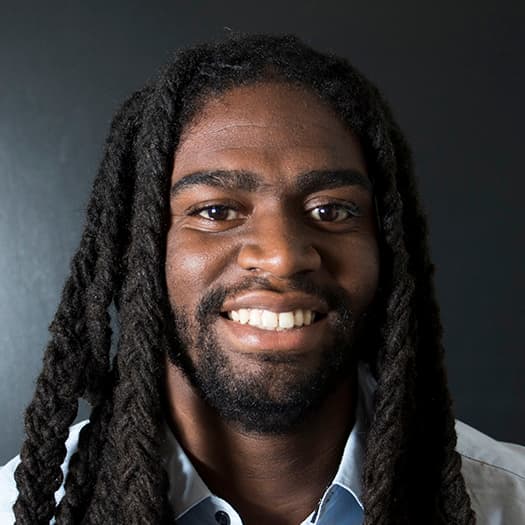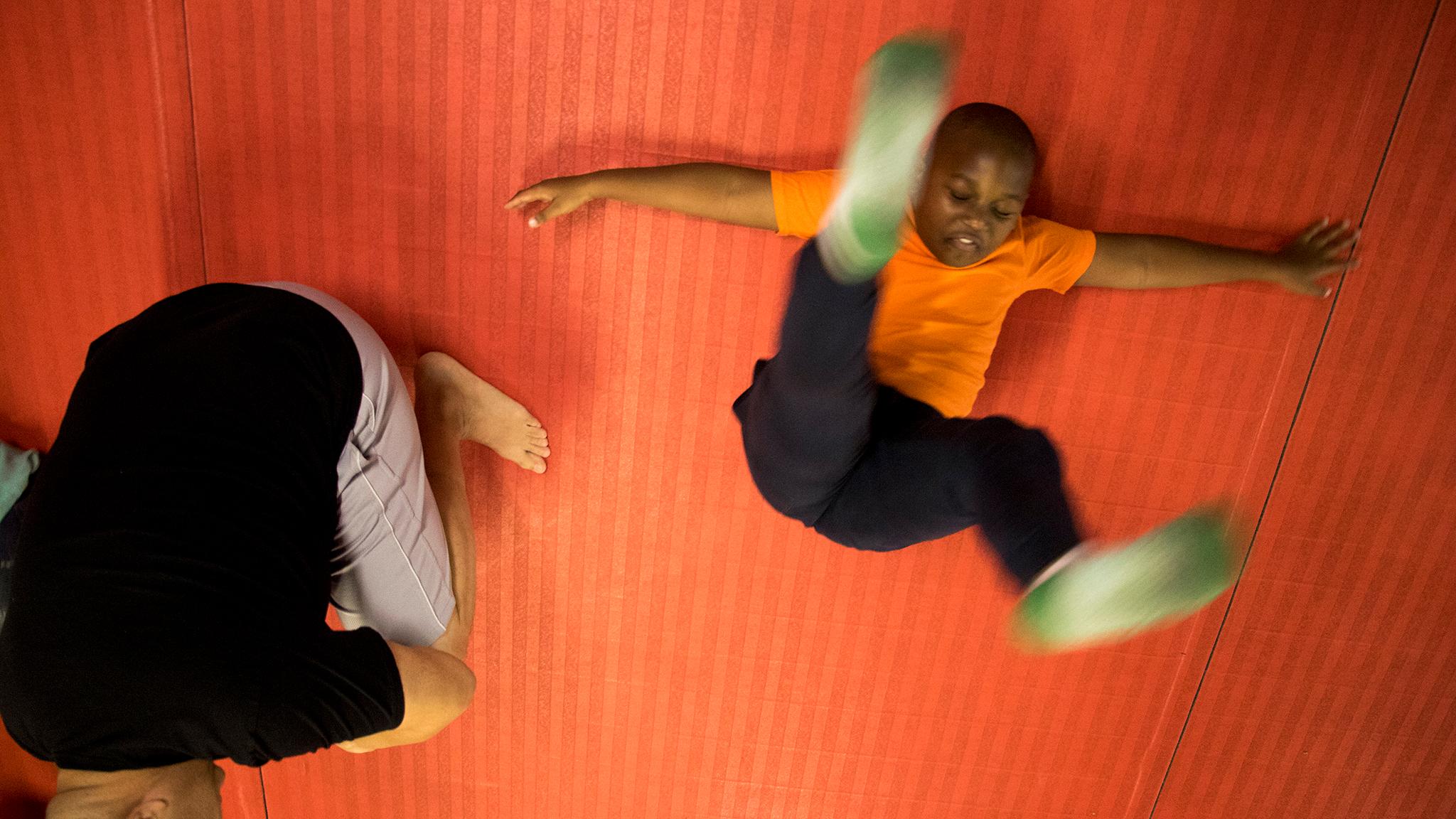The murder of Tyrone Adair Jr. — well known by his stage name, BossMan Goodie — in front of Cold Crush in 2016 was heartbreaking for many Denverites. And in the aftershock of that moment, Dontae Hudspeth, also known as Waze, was inspired to take a firm position on gun violence.
“Once he had got killed, I got on to my Facebook and was like man, if y'all don’t catch a fade or something along those lines,” Waze said, describing his reaction to the news. In making this statement, Waze had unwittingly laid the underpinnings of the #catchafade movement.
Although Goodie’s death was a high-profile incident and the situation finally gave the city of Denver an excuse to label Cold Crush a public nuisance, it was far from an isolated case of violence in the city. In fact, the year after Goodie's murder, 2017, was tied for the deadliest year in a decade. Between January 2016 and December 2017 there were 114 murders in Denver. There were 52 in Aurora during that same time.
Waze was convinced that there had to be an alternative outlet for aggression that could counteract the gun violence plaguing the city. He believed the idea of hand-to-hand combat as a mediation platform might resonate in the community.
“A message, you know. Basically just putting the guns down and stop killing each other. Everybody that is somebody in the town loves it,” Waze said.
"I mean it actually blows me away kind of when they figure out the meaning and the message. Even older people, from the old school down to the youngsters, when I talk to my little homies they’re all with it, they're all for it. It's a concept.”
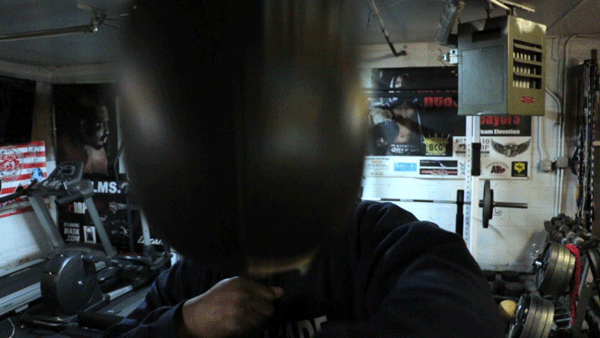
Gun violence can be concentrated in underserved neighborhoods, and homicides can have dramatic impacts that linger far longer than the squabbles Waze remembers having with his peers in his youth. He believes that most of the altercations that result in homicide could be settled well before gunplay is involved.
“I promise you, bro, there's so many instances where all somebody had to do was knuckle up and we’d probably have a few more brothas on the street nowadays,” Waze said.
Although there was a music video accompanying his #catchafade concept, there was still a gap between the idea and its implementation. But he was able to link up with like-minded Denver resident, Lumumba Sayers, who also happens to be a world class fighter and former champion who owns his own gym, Heavy Hands, Heavy Hearts.
Sayers hails from the east side of Denver and noted that he grew up in an environment where violence was at times used as a comprehensive form of communication. He says he was involved in a quite a few fights when he was younger, pretty much all victories, but at times he ran like he lost afterward in fear that someone would retaliate with gun violence.
“I'm probably one of the No. 1 people in Denver that would try to catch a fade when I was younger,” Sayers said.
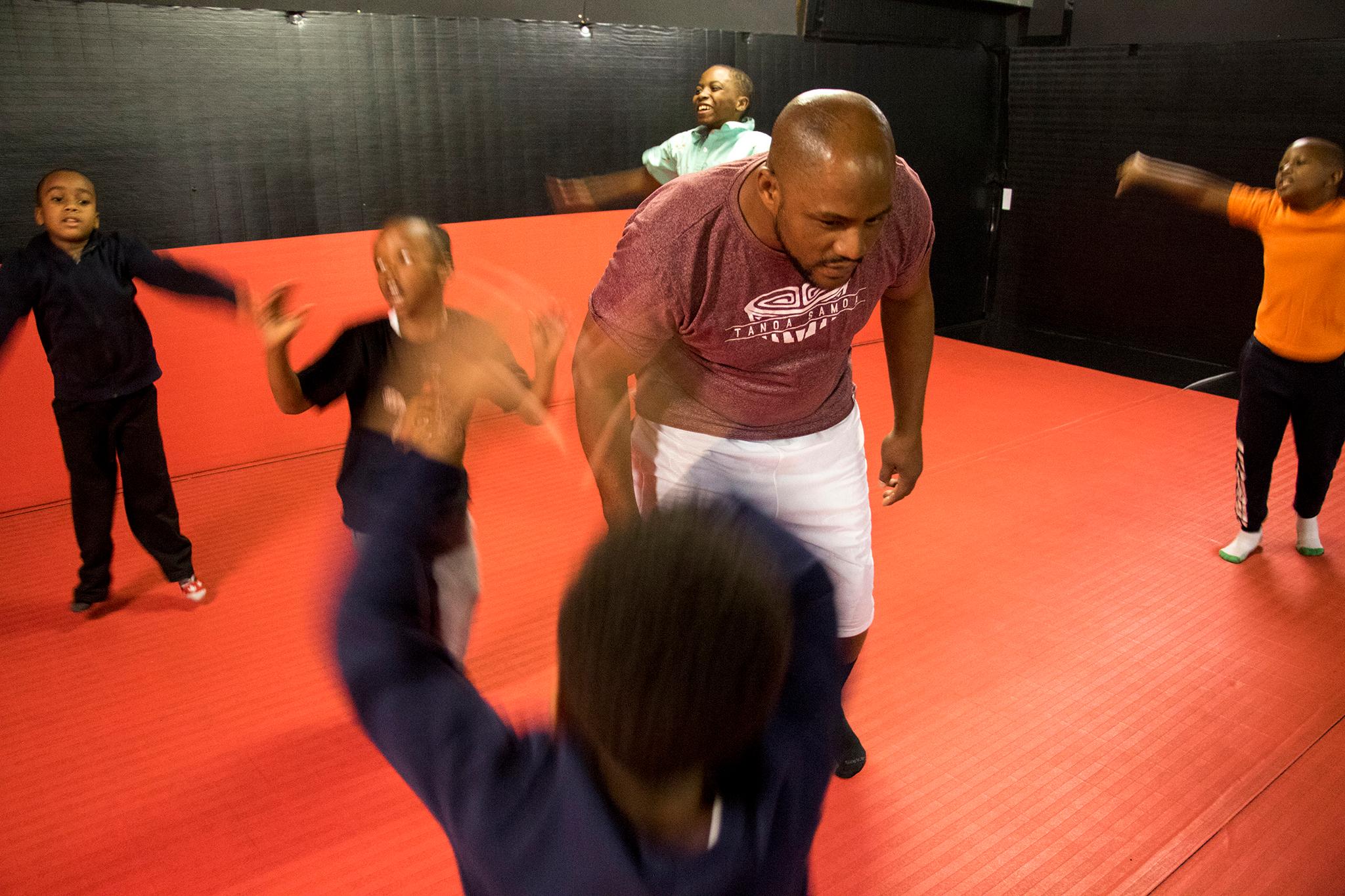
He feels like getting some of these Denverites, especially the younger ones, involved in a more positive form of conflict resolution could have a tremendous impact on neighborhoods like the ones he grew up in.
“Instead of these kids out here shooting each other and killing each other, you could catch a fade,” Sayers said.
"What we’re trying to do is get everybody to put these guns down, step up and do it the right way. ... We want to be that voice of reason to where we can say, 'Hey look, we changed our lives, we ain't with that no more and we're trying to change your life. We caught the heads with people and nobody died.'”
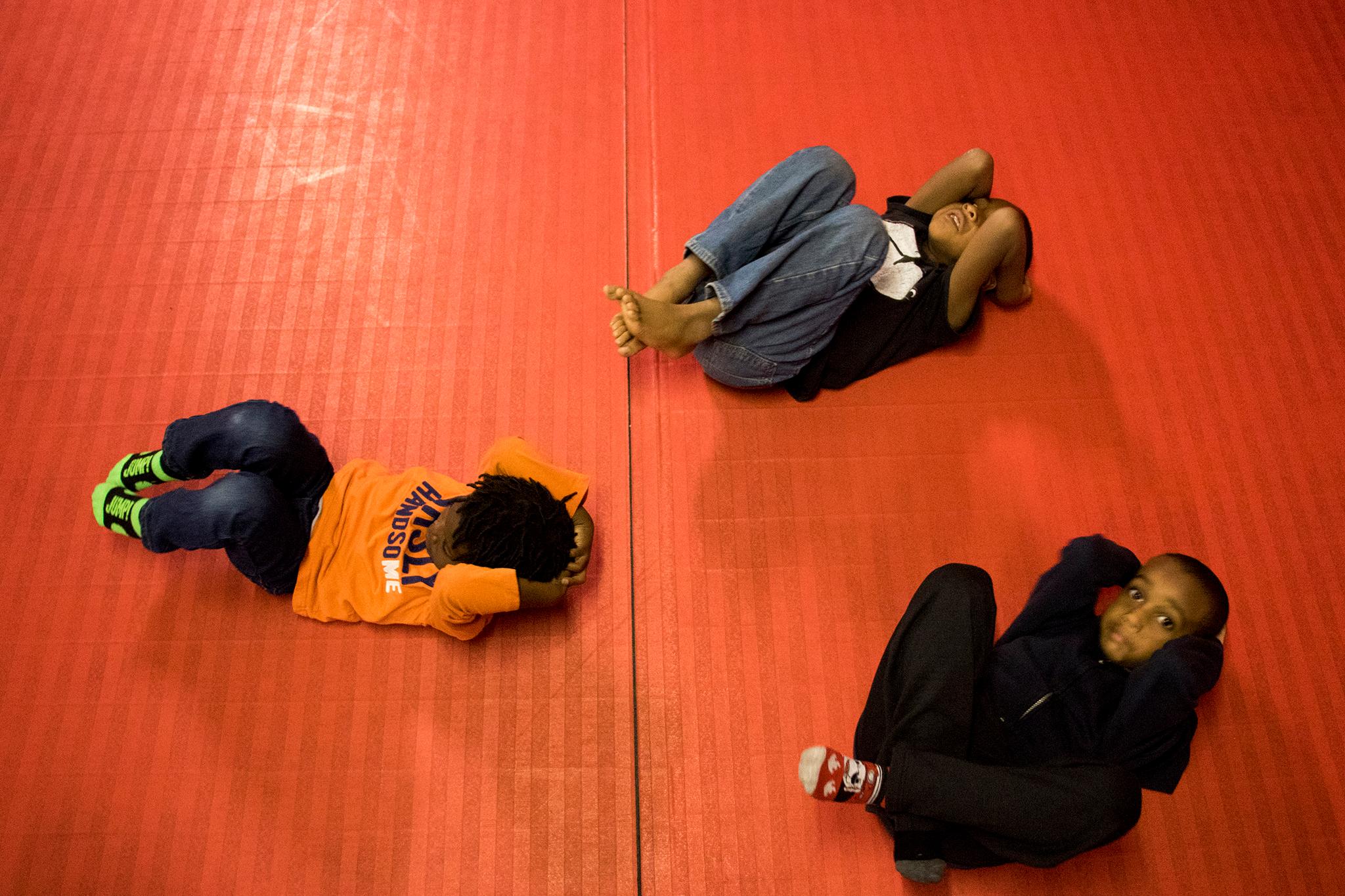
Sayers is willing to put in the work of training some of these young people at little to no cost because, in his opinion, the time he would spend training them is worth potentially saving someone’s life.
“Training could be for free or cost this amount. Nine out of 10 times we'll offer it for free. In exchange, it's going to stop somebody from getting killed,” he said.
Brother Jeff Fard, founder of Brother Jeff's Cultural Center, is a fan of Waze and Sayers' movement and says he’s worked closely with Sayers over the years to affect change.
“First, I'm huge fan of whatever Lumumba does," Fard said. "I've been working with him for many years. Whether it meant going into schools talking to young people, showing them how to effectively deal with deescalating challenging situations and deescalating violence. ... Importantly, he comes from a place in the community where it was filled with the type of violence we’re talking about.”
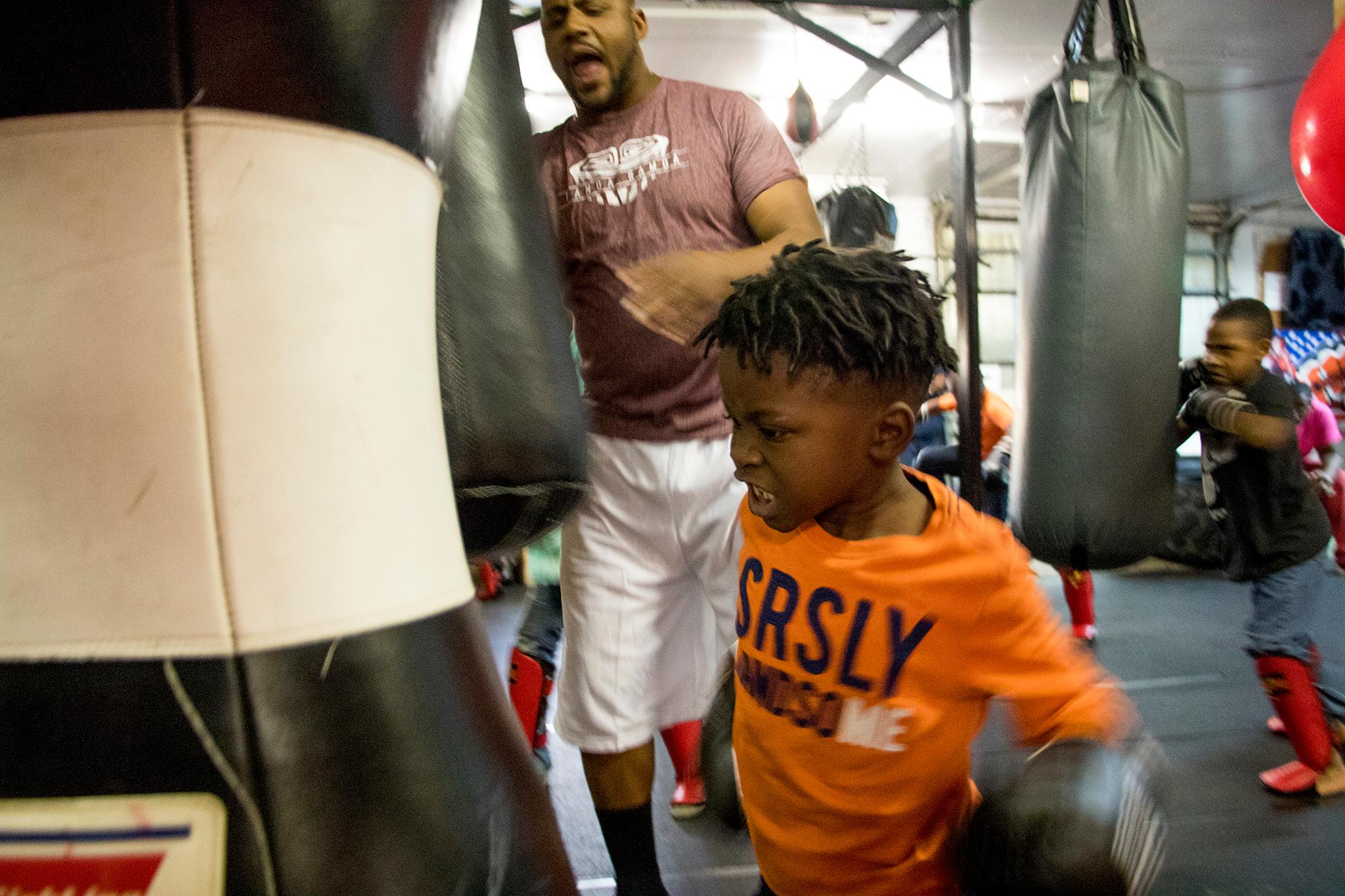
Sayers says he plans on using those networks to enhance the strength of the movement.
“We can reach out to some of these big homies, some of the OGs. I can reach out to everybody, I'm cool with everybody. There's not one hood that can say they have a problem with me,“ he said.
Fard said that the latent benefits of the #catchafade movement could be nearly as impactful as the change in conflict resolution it hopes to produce. He noted that oftentimes young people try to navigate these situations without adults and this movement provides a unique opportunity for intergenerational collaboration.
“Who would disagree with having adults supervising and spatially moderating conflict safely? That's a good thing,” Fard said.
"Fist-fighting as opposed to gunfighting? In the world of public policy, we call that harm reduction. In other words, if a person who smokes a pack of cigarettes a day smokes half a pack of cigarettes, they reduce the harm. ... If we're backing away from guns and you're adding adults and you're adding training, that’s harm reduction, that's positive. Conflict is inevitable, it's how you handle it that makes all the difference."
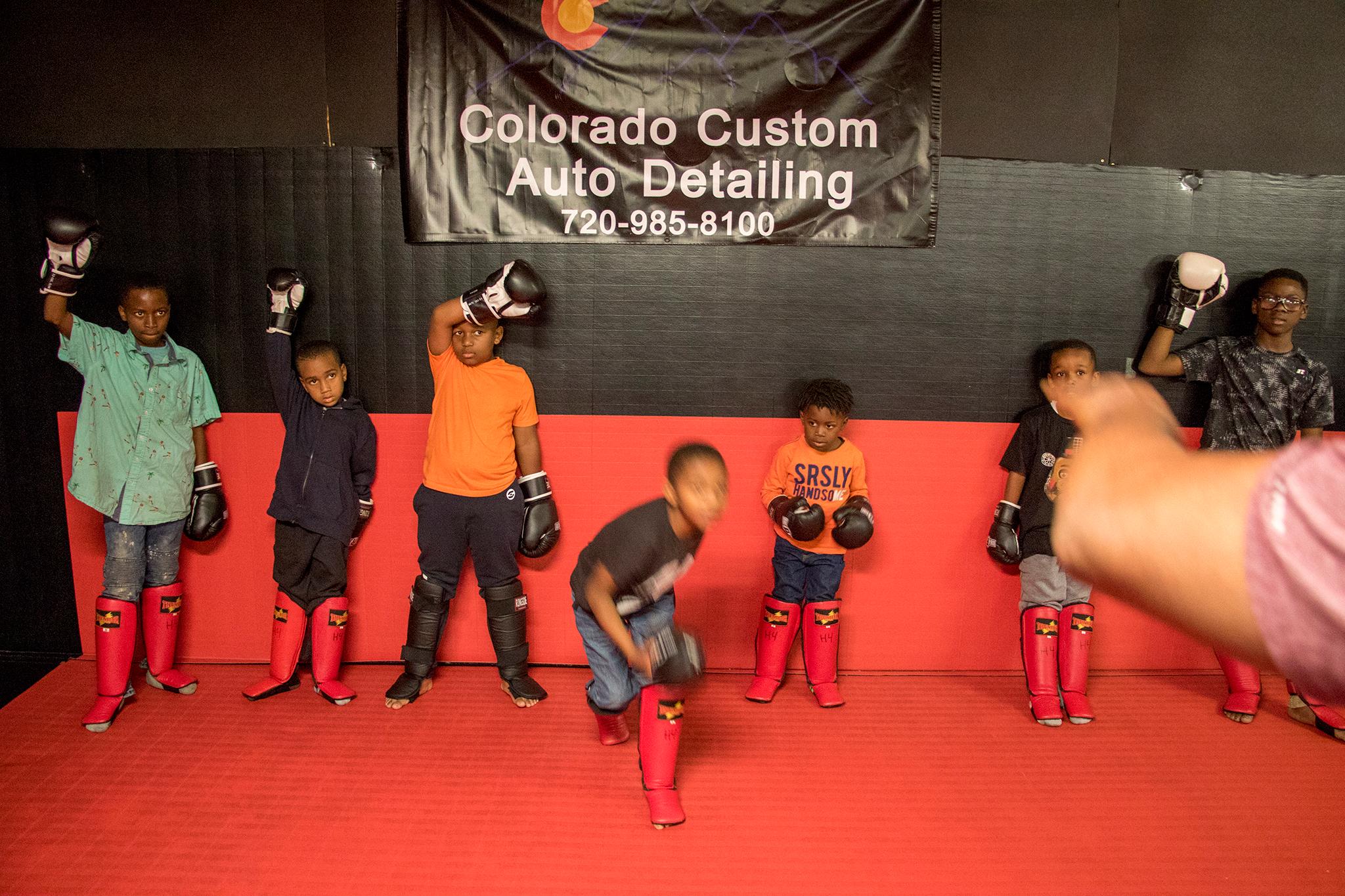
Waze and Sayers feel like the movement has continued to gain momentum since its inception back in 2016 and believe the sky's the limit.
Sayers is also keen on the unifying impact that fight culture can have. He could even envision a scenario in which different neighborhoods collaborate in order to create a place for conflict resolution.
“Think about this, I am probably one of the first black, African American, fighters from the hood [in Denver]. So everybody from Park Hill, the east side, Montebello, Aurora, and the north side would be together rooting, cheering for me fighting. They didn’t care. I was representing the town, I would go on national TV with 5280, 303 in my hair,” Sayers said.
“I think that if we went to every hood and grabbed somebody from every weight class out of that hood and matched them up with somebody with a different hood, gave them the rules and regulations, that'd be great.”
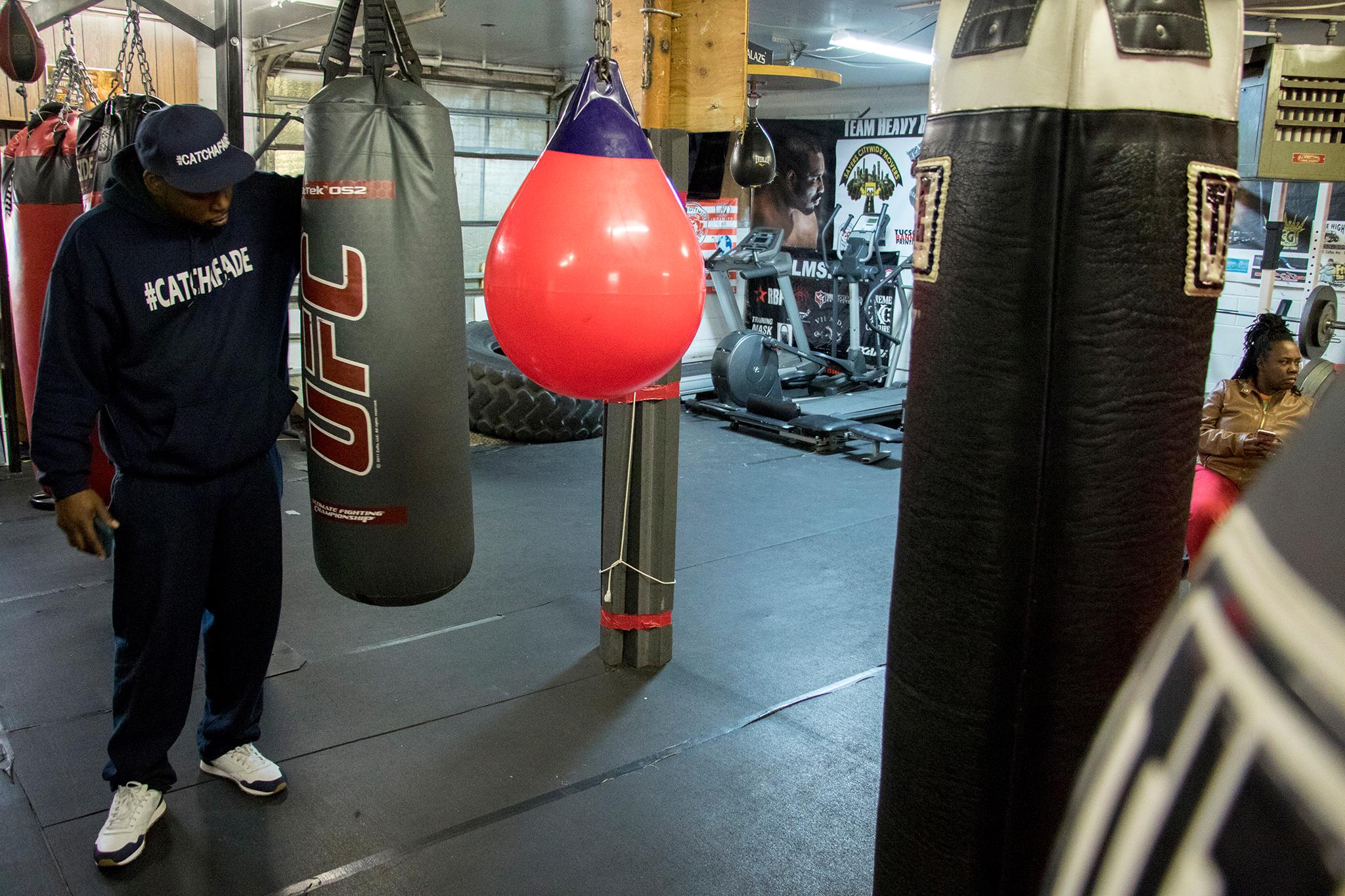
Sayers says if someone is interested in his gym as a resource, he welcomes them to reach out or to donate.
They've branded the movement with t-shirts, hoodies and other apparel emblazoned with the #catchabrand stamp. While their website is under construction, you can reach out to Waze on Facebook if you're looking to purchase some of the gear.
You can also find more about the potential etymological roots of the word fade in this charming and slightly confused podcast about slang words.
